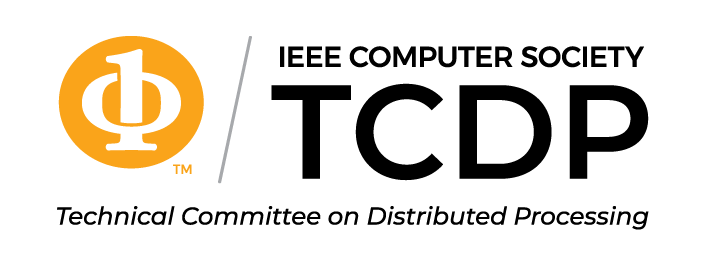Keynotes Information
The Story of Raft
Prof. John Ousterhout, Stanford University
Abstract
In this talk I will discuss the back-story behind the Raft consensus algorithm: why we decided to undertake this project, how the algorithm developed, and the challenges of publishing an idea that “gores a sacred cow”. I will also make several observations about how to perform research, how program committees work, and the relationship between Paxos and Raft.
Biography

John Ousterhout is the Bosack Lerner Professor of Computer Science at Stanford University. His current research focuses on new software stack layers to allow datacenter applications to take advantage of communication and storage technologies with microsecond-scale latencies. Ousterhout’s prior positions include 14 years in industry, where he founded two companies (Scriptics and Electric Cloud), preceded by 14 years as Professor of Computer Science at U.C. Berkeley. He is author of the book “A Philosophy of Software Design.” He is also the creator of the Tcl scripting language and is well known for his work in distributed operating systems and storage systems. Ousterhout received a BS degree in Physics from Yale University and a PhD in Computer Science from Carnegie Mellon University. He is a member of the National Academy of Engineering and has received numerous awards, including the ACM Software System Award, the ACM Grace Murray Hopper Award, the National Science Foundation Presidential Young Investigator Award, and the U.C. Berkeley Distinguished Teaching Award.
Tech-Transfer Stories and Takeaways
Dr. Dahlia Malkhi, CTO, Diem Association
Biography

Dahlia Malkhi is Chief Technology Officer at Diem Association, Lead Maintainer of the Diem project, and Lead Researcher at Novi.
Dahlia Malkhi has applied and foundational research interest in broad aspects of reliability and security of distributed systems. For over two decades, she participated in driving innovation in tech, notably: co-inventor of HotStuff, co-founder and technical co-lead of VMware blockchain, co-inventor of Flexible Paxos, the technology behind Log Device, creator and tech lead of CorfuDB, a database-less database driving VMware’s NSX-T distributed control plane (see Corfu github repo), and co-inventor of the FairPlay project.
Dahlia Malkhi joined the Diem (Libra) team in June 2019, first as a Lead Reseacher at Novi and later as Chief Technology Officer at the Diem Association. In 2014, after the closing of the Microsoft Research Silicon Valley lab, she co-founded VMware Research and became a Principal Researcher at VMware until June 2019. From 2004-2014, she was a principal researcher at Microsoft Research, Silicon Valley. From 1999-2007, she served as tenured associate professor at the Hebrew University of Jerusalem. From 1995-1999, she was a senior researcher at AT&T Labs, NJ. She hold Ph.D., M.S. and B.S. in computer science from the Hebrew University of Jerusalem.
Health Monitoring with Wireless Sensors and Machine Learning
Prof. Bruce Maggs, Duke University
Abstract
This talk introduces the Emerald health monitoring system, a new technology that automates health monitoring through innovations in wireless sensing and machine learning. An Emerald device in the home transmits low-power radio signals and records their reflections. The recorded data is then passed to the cloud for processing using neural network algorithms. The monitoring system can infer the movements, breathing, heart rate, falls, sleep apnea, and sleep stages of people in their homes — all without requiring them to wear any sensors. By monitoring physiological signals continuously, the system can automatically detect deterioration in health conditions, enabling early intervention and care. The talk will describe the underlying technology and present results demonstrating its promise in monitoring geriatric populations.
Biography

Bruce Maggs received the S.B., S.M., and Ph.D. degrees in computer science from the Massachusetts Institute of Technology in 1985, 1986, and 1989, respectively. His advisor was Charles Leiserson. After spending one year as a Postdoctoral Associate at MIT, he worked as a Research Scientist at NEC Research Institute in Princeton from 1990 to 1993. In 1994, he moved to the Computer Science Department at Carnegie Mellon, where he achieved the rank of full Professor. While on a two-year leave-of-absence from Carnegie Mellon, Maggs was a founding employee of Akamai Technologies, serving as its first Vice President for Research and Development. In 2009, Maggs joined Duke University, where he is the Pelham Wilder Professor of Computer Science. In 2018 he was part of a large team that received the inaugural ACM SIGCOMM Networking Systems Award for the Akamai Content Distribution Network, and was named an ACM Fellow. Maggs is currently on leave from Duke and is serving as Director of Engineering for Emerald Innovations.



